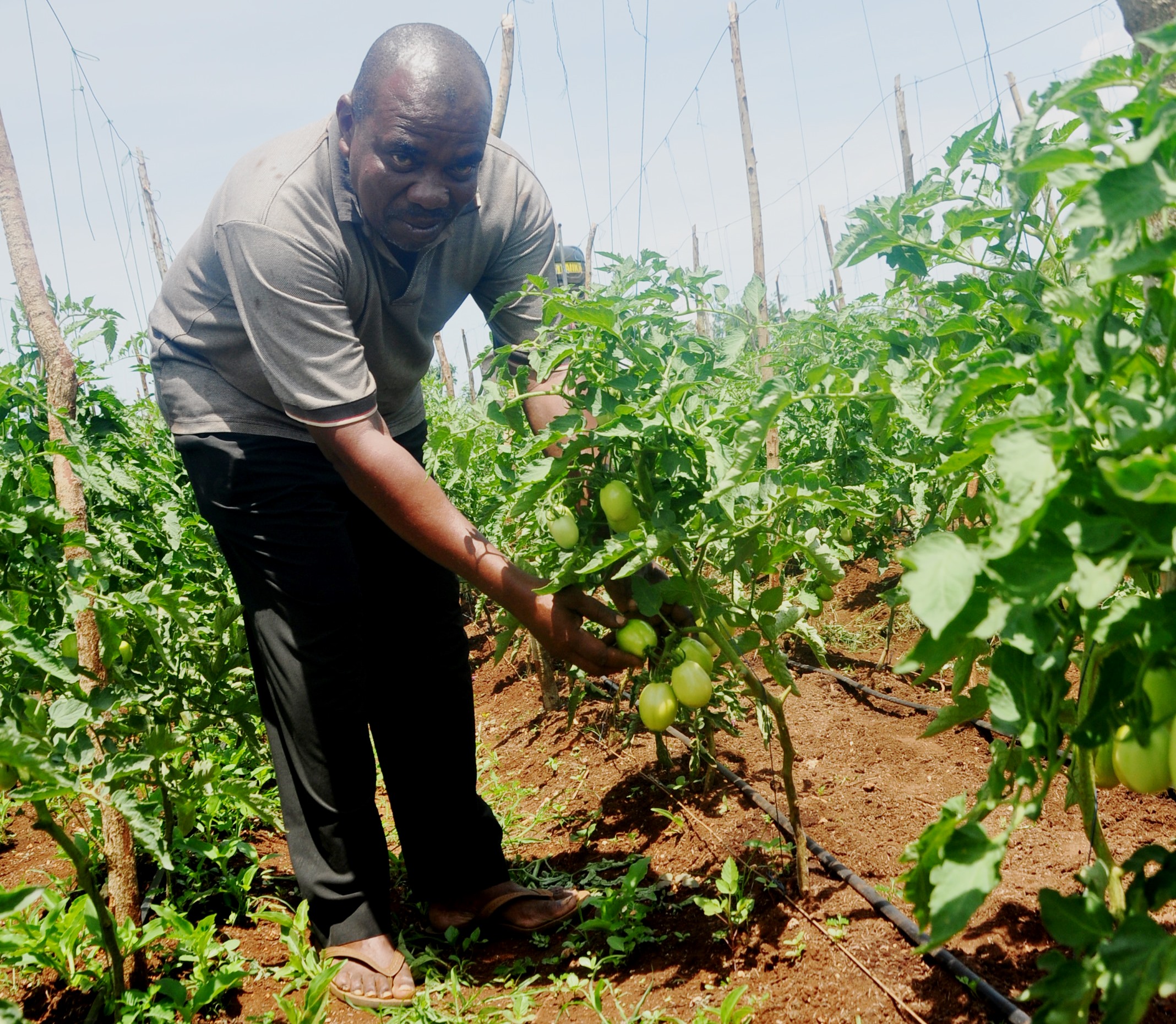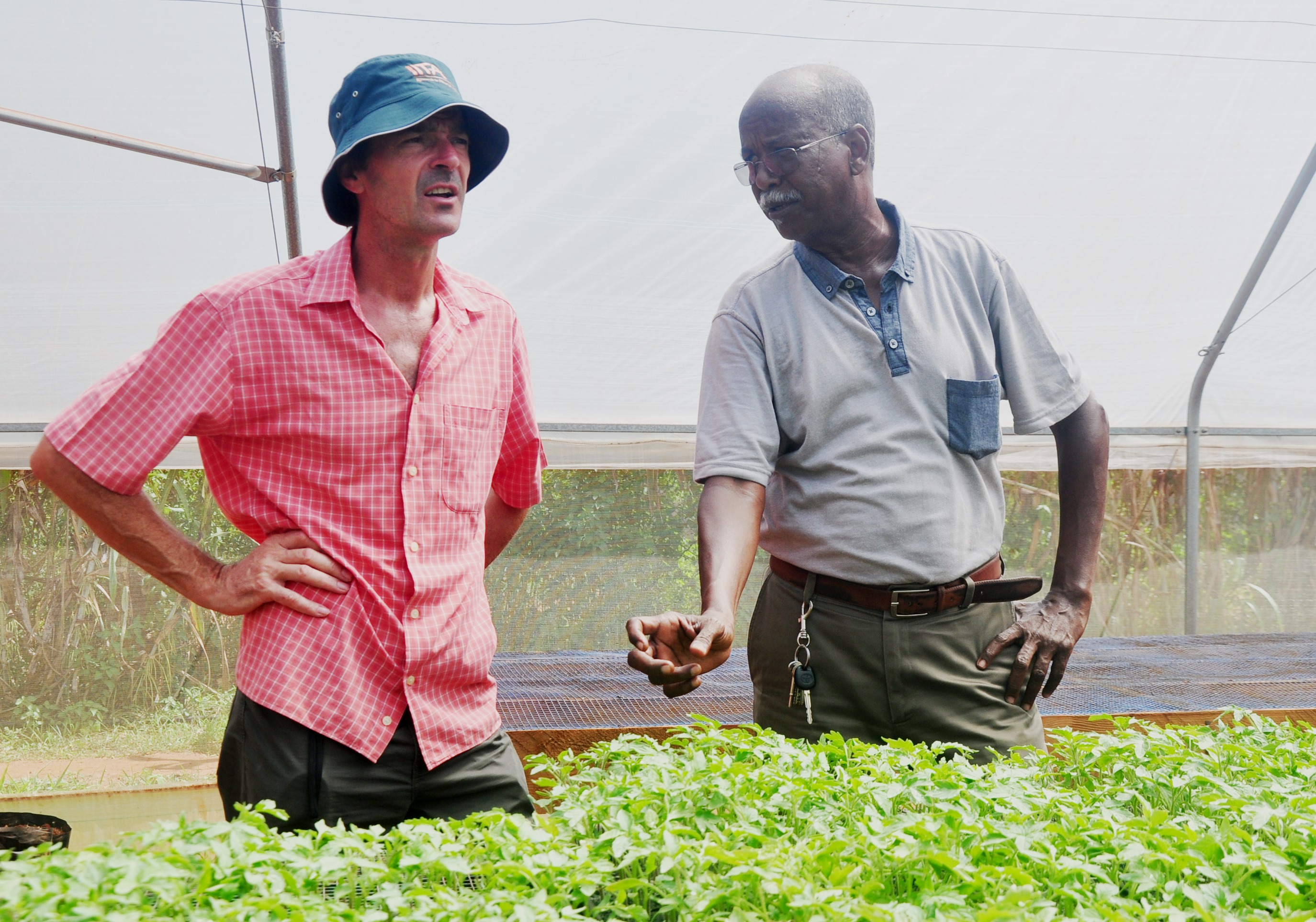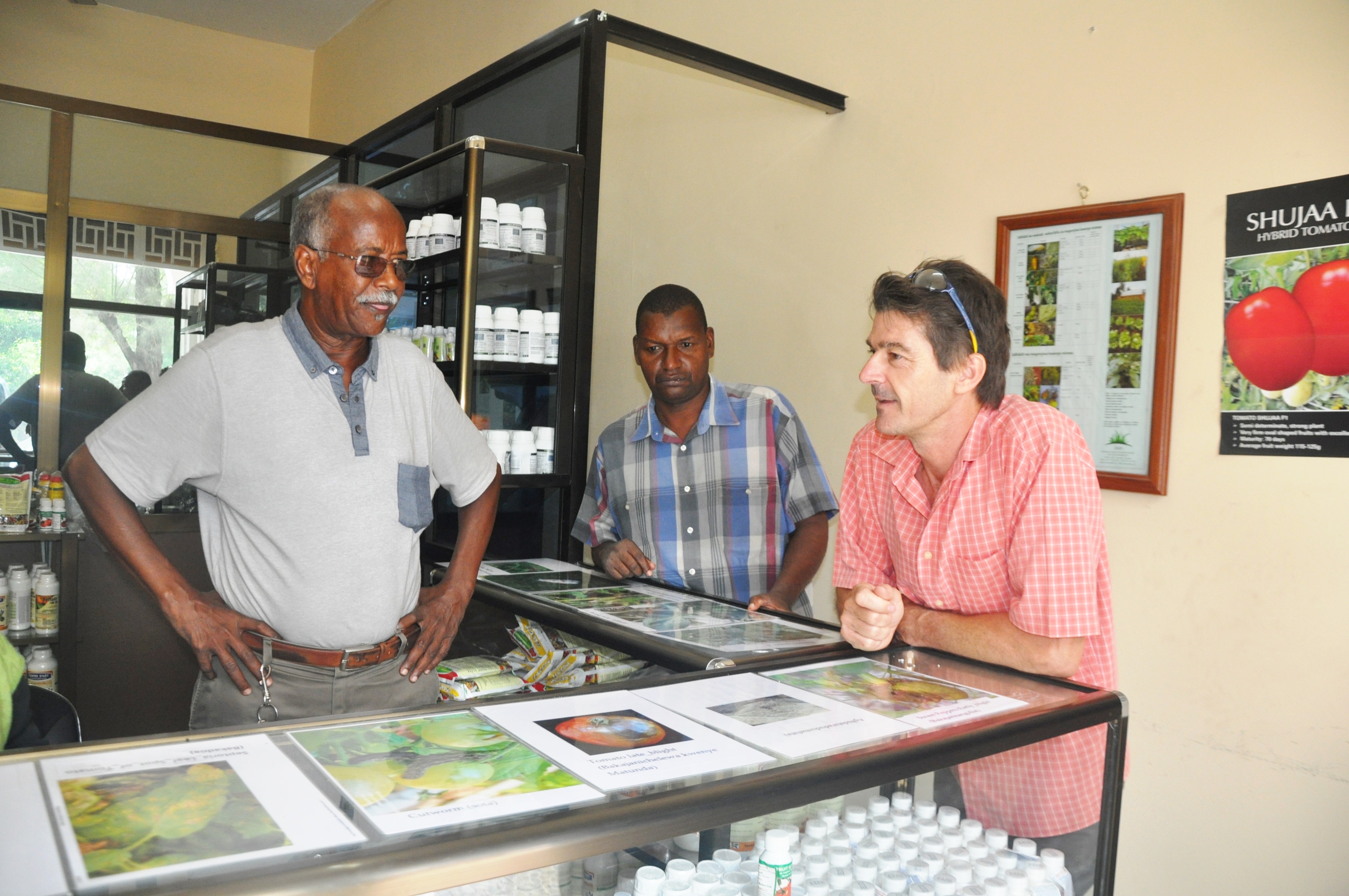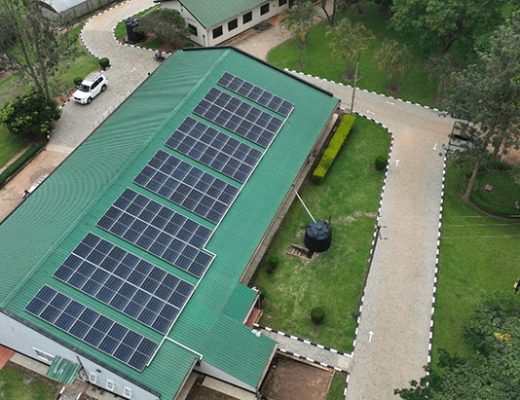There is a high demand for vegetables in the island of Zanzibar, known for its sandy beaches and historic Stone Town, but the local farmers are unable to effectively tap into this lucrative tourist market despite the fertile soils and an accommodating climate ideal for vegetable production. The majority of vegetables are imported, mostly from the mainland, at high cost.
A major challenge is that local vegetable varieties are low yielding and suffer from pest and disease attack. One project is working with smallholder farmers in Zanzibar for the safe production of vegetables, to tap into the market, increase their income, and contribute to lowering the price of vegetables for local consumers.
The project has linked up with the Zanzibar Agricultural Investment and Development Inc. (ZAIDI) and in cooperation with the Tanzanian Agricultural Productivity Program (TAPP) has piloted an innovative seedling production unit to deliver healthy seedlings of improved varieties to farmers.
It is encouraging farmers to grow high-yielding, improved vegetable varieties, and use good agricultural practices, particularly on reducing losses from pests and diseases. At the same time it is reducing farmers’ reliance on synthetic pesticides.
The project, led by IITA, is funded by the German Government through the German Society for International Cooperation (GIZ) and the Federal Ministry for Economic Cooperation and Development (BMZ) and extends across coastal East Africa.
“Most farmers who grow vegetables do so mostly for home use and use small plots. They plant local seeds which they produce for themselves. The project aims to change the mindset of farmers towards vegetable farming, commercialize it, and tap into a ready market,” says Dr Danny Coyne, IITA soil health specialist and the project coordinator.
“Most farmers in Zanzibar produce their own seedlings using a small portion of the field for their nurseries; some cover them with mosquito nets to keep away pests. But a key threat comes from the soil―from soil-borne diseases and pests such as nematodes. We are therefore training farmers how to produce and handle the healthy seedlings,” Danny says. “Healthy seedlings need less pesticide. This reduces costs and also makes the vegetables safer for consumers.”
The pilot seedling production unit in Zanzibar was established in 2013 at ZAIDI, using an AMIRAN Farmers Kit―a small plastic greenhouse. ZAIDI is growing seedlings, mostly tomato and pepper, using seedling trays and sterile media. When farmers purchase seeds at the ZAIDI store, they can choose whether to take the seeds away to plant directly or alternatively to pay an additional cost for ZAIDI to prepare the seedlings for collection when three weeks old. The seedlings are also enhanced with a biological treatment for protection against nematodes and other soil-borne diseases through a further collaboration with Real IPM, a company based in Kenya producing biologically based pest management products. The site is also used for the demonstration of good farming practices.
“The demand for the healthy planting material is so high. We don’t have enough seedlings to meet this demand. Currently we are selling healthy seedlings to about 20 farmers a month,” says Abdullahi Yahie, the founder of ZAIDI.
Reaping rewards from using clean seeds
Makame Hamis, 58, from Kitumba village, Central District, is one of the farmers growing the hybrid seeds purchased from ZAIDI. He has also received training on good farming practices to maximize his yield.
“I have been growing local varieties of tomato for three years. But now I am growing hybrid varieties which I bought from ZAIDI and I can see a big difference. Before, I would lose nearly half my plants to diseases but not anymore. Now my income has increased three times,” Hamis said.
Encouraged by the good results, Hamis is expanding his vegetable production and investing in drip irrigation to ensure year-round production. The project has chosen him as a model farmer to demonstrate other improved farming practices and encourage surrounding farmers to use quality hybrid varieties and healthy seedlings.
Hamis Abdi Miraji, 63, and Ali Suleiman Ame, 52, are also good customers of ZAIDI. “We have received training from ZAIDI on the use of healthy seedlings, and safe use of pesticides. We have now seen that vegetable farming can be a good business. We can make money from it,” says Miraji.
Challenges in supply of healthy seeds
ZAIDI also faces many challenges but it plans to concentrate on the production and supply of clean healthy seedlings and support farmers in adopting better agricultural practices,” says Abdullahi. “We see real potential to make a positive change in the lives of farmers in Zanzibar.”
Many organizations have also seen the potential for vegetables in the island and are supporting the farmers and ZAIDI to increase production. These include the Government of Zanzibar and the Zanzibar Agricultural Research Institute. Soon, fresh vegetables will be more accessible to Zanzibaris. The hundreds of thousands of tourists who visit the island every year will be enjoying locally grown fresh vegetables, thus having more impact in the lives of the local communities and supporting the island’s economy.






No Comments